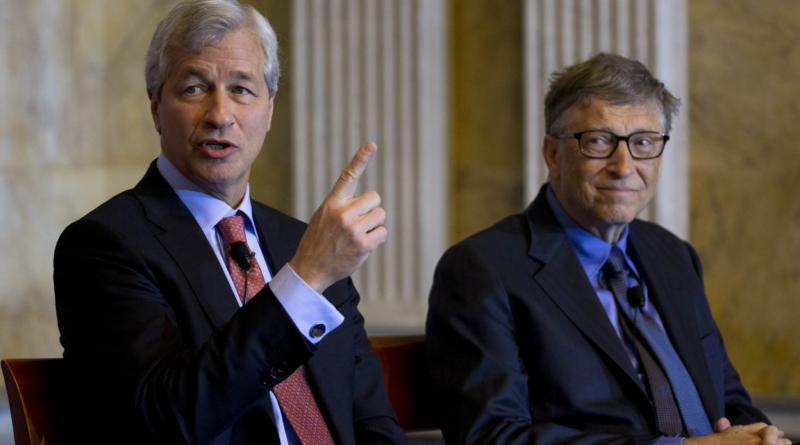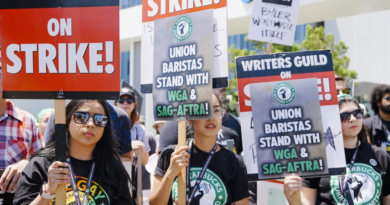Jamie Dimon and Bill Gates won’t publicly criticize Trump because they need leverage in the next political firestorm, ‘CEO whisperer’ says: ‘They have to keep their powder dry’
Jamie Dimon’s and Bill Gates’s support for Kamala Harris are poorly kept secrets. Microsoft cofounder Gates donated $50 million to a nonprofit supporting Harris, multiple sources told the New York Times. Meanwhile, JPMorgan Chase CEO Dimon has reportedly considered a role in Harris’s administration, should she be elected president.
But the magnates’ quiet support for Harris doesn’t mean they’re willing to publicly criticize former President Donald Trump as he seeks to recapture the White House. Dimon and Gates have been notably silent in their critiques of the former president, even as Trump ekes ahead of Harris in polls only weeks before the election.
Dimon and Gates join a gaggle of other high-profile executives—including the vast majority of Fortune 100 CEOs—who have plenty of negative things to say about the former president, but only behind closed doors.
Jeffrey Sonnenfeld, a Yale School of Management professor and president of the Chief Executive Leadership Institute, told Fortune that Dimon and Gates are keeping quiet in order to preserve power and authority, should they need to use it later.
“They have to keep their powder dry,” said Sonnenfeld, whose close relationships with American execs gave him the title of “CEO whisperer.” “If they speak out on every single issue and every twist and turn, then they don’t have the force of their voice when they need it.”
An example of when business juggernauts did organize in a high-stakes political moment came days after the 2020 election. That’s when more than two dozen CEOs met over Zoom to respond to Trump’s denial of the election results confirming Joe Biden as the next U.S. president.
The Business Roundtable, which represents Walmart, Apple, Starbucks, and General Electric, among other companies, released a statement congratulating Biden.
In addition to preserving their political capital, another part of the strategy in not speaking out on Trump’s 2024 campaign and platform is fear that their comments would be bad for business.
“They don’t antagonize Trump because…they don’t want to alienate customers and employees and investors who think differently about the elections if they don’t have to,” Sonnenfeld said. “No reason to stick a finger in the eye and antagonize parts of their own workforce, parts of their own customer base, parts of their own investor base.”
Previous theories
Sonnenfeld’s theory diverges from that of former American Express CEO Ken Chenault, who posited CEOs’ silence on Trump comes from worry of retaliation. Trump told Dr. Phil in June he would consider seeking revenge on his political adversaries.
“The fear is real,” Chenault told Bloomberg in July. “People are staying on the sidelines because they greatly fear that there will be retribution.”
JPMorgan Chase managing director of communications Joe Evangelisti told Fortune, “We are not fearing retaliation. We simply believe we can be more impactful speaking out on important policy issues rather than discussing politics and politicians, which can often be misrepresented or weaponized by the left or right.”
Gates did not respond to Fortune’s request for comment.
The philosophy of JPMorgan Chase aligns with Sonnenfeld’s hypothesis. The open secret of Dimon’s and Gates’s support of Harris—which they’re likely aware is now public knowledge—is exactly why they’re not concerned about retaliation.
“They’re not afraid of Trump,” he said. “Trump is already furious at them.”
When and why CEOs speak up
Dimon and Gates keeping strategically quiet about their election views continues to evolve a centuries-long narrative about the relationship between business leaders and American politicians.
Today, the general consensus among U.S. CEOs is that Trump’s policies will not serve their businesses, according to Sonnenfeld. This is primarily because they don’t believe in isolationism and rely heavily on global financial and technology systems, which is directly at odds with Trump’s plank of steep tariffs.
Sonnenfeld cited Harley-Davidson’s decision to shift some of its production from the U.S. to a factory in Thailand in 2019 in order to side step taxes imposed by the European Union in retaliation for Trump’s hiked tariffs on steel and aluminum.
“[CEOs] are horrified by Trump’s ridiculous claims that tariffs are a source of revenue,” Sonnenfeld said.
Trump did not respond to Fortune’s request for comment.
Executives’ overwhelming sentiments against Trump break from the tradition of Union Leagues formed in the mid-1800s as a way for business leaders to support Republican Abraham Lincoln. The practice of executives vocally supporting Republican presidents continued until 2016, when CEOs’ optimism on a pro-business Trump presidency quickly soured. With the exception of Elon Musk and some tech moguls, Sonnenfeld said, few CEOs are willing to fervently back Trump.
But Trump’s many CEO dissenters are also unlikely to make headlines. Not unless Trump—or Harris—incites a radical political firestorm that requires their intervention.
“They don’t see that they’re elected public officials,” Sonnenfeld said. “They are stewards of other people’s money as CEOs and public corporations.”




